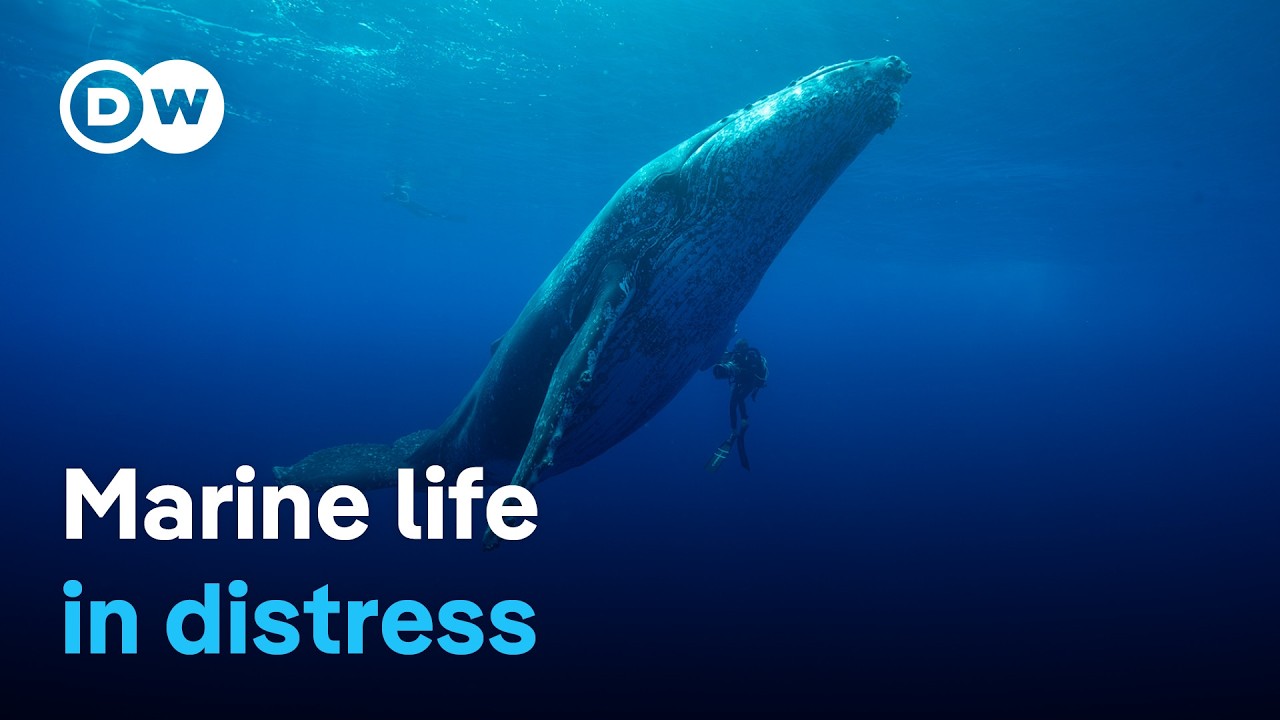Of whales and turtles – How can we save the creatures of the sea? | DW Documentary
Humans have hunted humpback whales and sea turtles for a long time, driving them to the brink of extinction. On La Réunion, the Comoros islands, and Madagascar, dedicated individuals are showing how we can respectfully coexist with these giants of the oceans.
A baby whale born off the coast of La Réunion and an adult sea turtle make their first ocean crossing. The small whale is spotted alongside its mother near Madagascar, an important stage in the migration route of the marine mammals, which head for the nutrient-rich waters of the Antarctic every year. The sea turtle, on the other hand, has a different destination – it’s headed for the island of its birth, hundreds of kilometers away. Once there, it will reproduce to ensure the survival of its species.
Humans hunted humpback whales and sea turtles to the brink of extinction. Populations are recovering today, but human activities still pose a threat to these fascinating sea creatures. If they are to survive, humans must change their behavior and learn to live harmoniously and sustainably with them.
For example, tourist divers on La Réunion are encouraged to treat the humpback whales with respect, and leave it up to the animals to decide whether to approach their human observers. During whale watching tours off Sainte-Marie, boat engines are switched off so as not to disturb the ocean giants. And in Comoros, the inhabitants of Itsamia put a stop to poaching and make sure the creatures can lay their eggs in peace on the beach.
#documentary #dwdocumentary #nature #marinelife
______
DW Documentary gives you knowledge beyond the headlines. Watch top documentaries from German broadcasters and international production companies. Meet intriguing people, travel to distant lands, get a look behind the complexities of daily life and build a deeper understanding of current affairs and global events. Subscribe and explore the world around you with DW Documentary.
Subscribe to:
⮞ DW Documentary (English): https://www.youtube.com/dwdocumentary
⮞ DW Documental (Spanish): https://www.youtube.com/dwdocumental
⮞ DW Documentary وثائقية دي دبليو (Arabic): https://www.youtube.com/dwdocarabia
⮞ DW Doku (German): https://www.youtube.com/dwdoku
⮞ DW Documentary हिन्दी (Hindi): https://www.youtube.com/dwdochindi
For more visit: http://www.dw.com/en/tv/docfilm/s-3610
Follow DW Documentary on Instagram: https://www.instagram.com/dwdocumentary/
Follow DW Documental on Facebook: https://www.facebook.com/dwdocumental
We kindly ask viewers to read and stick to the DW netiquette policy on our channel: https://p.dw.com/p/MF1G

31 comments
Of whales means onlyfans whales
They're doing just fine. Quit worrying yourself crazy for no reason lol
Germans can’t save their own country at this point.
"Creatures" implies creation, they're animals.
Very educative. I really like the narrative, from the birth of the whale, to nurturing. Also the narrative of the turtle and the dangers of survival. Really like the ducumentry.
I hope SDG 14 (Life below water) will be met. Thanks DW for this wonderful documentary
'Poorest of the world' or 'Stolen future/wealth'?
👏👏😘
Whales and turtles are doing just fine.
Cease hunting and dumping rubbish and nets in the waters
We've been blessed where I am from with an overabundance of green sea turtles thanks to decades of protection. There are so many, some of us are advocating for there to be a lottery-type system for culling just a few each year. This is incredibly important to our historical culture and ways of village celebrations for events such as weddings. They taste amazing.
A wonderful and informative documentary about Wales and turtles, the importance of preservation of ecosystems involved marine ecosystems…for whole lives on the earth.
Nice timing DW. The Japanese government are trying to extradite Paul Watson from Sea Shepherd for protecting whales.
Beautiful!
Gar nicht die welt werden wir Menschen schon zu grunde richten das ist mal gewiss 😂🎉
12:39 A green sea turtle, now sexually mature after 20 years, begins an incredible journey back to the island of Europa, 2,000 km west of La Réunion, where she was born and hasn't returned since hatching. Similarly, a whale calf, now experienced, is ready for its first major journey since leaving Antarctica.
well, environment and third world countries just don't mix, meanwhile am living in one of those countries
God is awesome
Bloody music.
1 survivor 😢
Be ware, the Japanese is coming
Excellent footage and documentary. Thank you DW for investing funds into this worthy topic.
Sonia's !!! (God)🧐🃏🙏
The voice is peaceful and so I can relax for a while for news,city noise,war & all kind of shit in my mind. There is a better side of our world and maybe we deserve better live ,at least sometimes
very educative !
They should have at least helped 20 out of the hundred turtles
Amazing documentary! Congratulations to the creators and DW! ❤️ ❤️ ❤️
Our brothers here In Earth !!!❤🥰🤩
it's very good video
The kid helping out the turtle is an amazing scene: 19:45 🌏
We, humans, are destroying all living creatures on this planet.